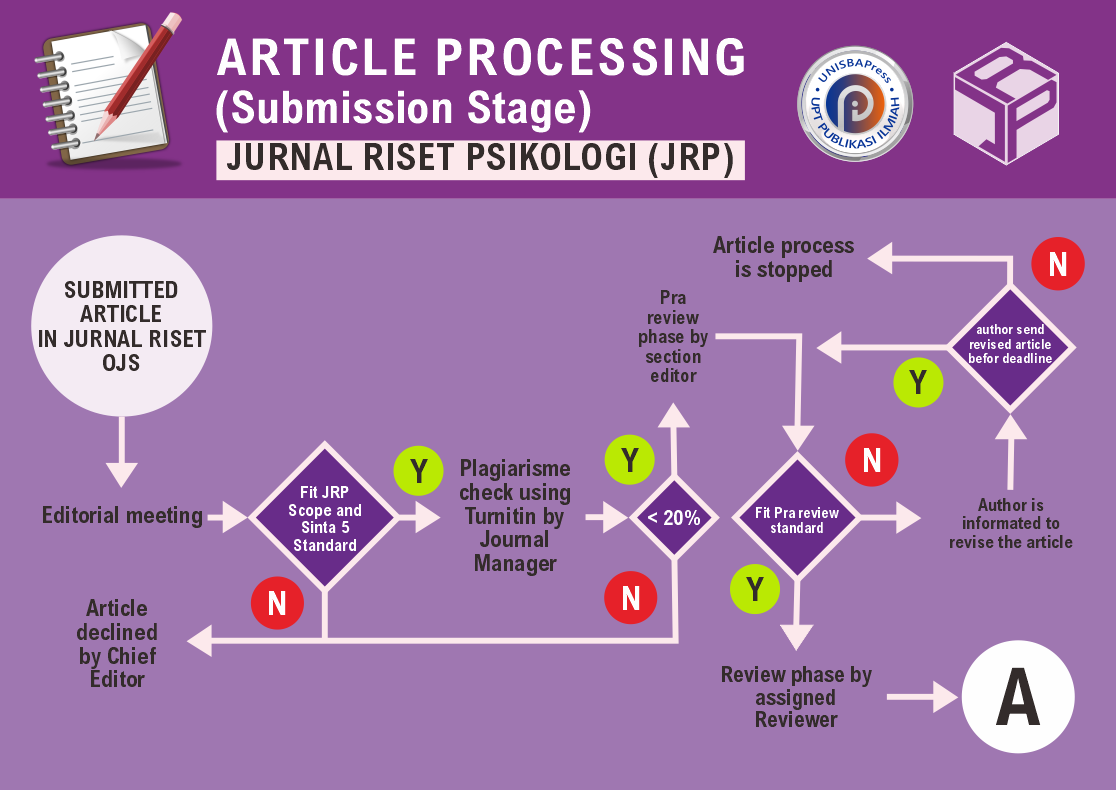Studi Kontribusi Perceived Organizational Support terhadap Employee Well-Being
DOI:
https://doi.org/10.29313/jrp.v3i2.2766Keywords:
Perceived Organizational Support, Employee Well Being, LecturerAbstract
Abstract. Perceived organizational support is the employee's perception of the extent to which the organization values contributions and cares about their well-being. Employee well-being is employee welfare consisting of subjective well-being, workplace well-being, and psychological well-being. This research aims to find out the description and contribution of perceived organizational support to employee well-being in lecturers at religion-based tertiary institutions in the city of Bandung. This study uses a quantitative method with multiple regression analysis. The measurement tool used to measure perceived organizational support variables is a survey of perceived organizational support developed by Eisenberger et al (1986). To measure employee well-being variables using the employee well-being scale developed by Zheng et al (2015). The results of this study indicate that 89.6% of lecturers have high perceived organizational support and 98.9% of lecturers have high employee well-being. This study shows the results that perceived organizational support affects employee well-being by 27.4%. Partially, the dimensions of evaluative judgment attributes to the organization on perceived organizational support have a positive and significant effect on employee well-being, while the dimensions of actions affecting the perceived organizational support do not have a significant effect on employee well-being.
Abstrak. Perceived organizational support merupakan persepsi karyawan mengenai sejauh mana organisasi dapat menghargai kontribusi dan peduli mengenai kesejahteraan mereka. Employee well-being merupakan kesejahteraan yang dimiliki karyawan yang terdiri dari subjective well-being, workplace well-being, dan psychological well-being. Tujuan dari penelitian adalah untuk mengetahui gambaran dan kontribusi perceived organizational support terhadap employee well-being pada dosen perguruan tinggi berbasis agama di Kota Bandung. Penelitian ini menggunakan metode kuantitatif dengan analisis regresi berganda. Alat ukur yang digunakan dalam mengukur variabel perceived organizational support adalah survey of perceived organizational support yang dikembangkan oleh Eisenberger et al (1986), untuk mengukur variabel employee well-being menggunakan employee well-being scale yang dikembangkan oleh Zheng et al (2015). Hasil penelitian ini menunjukkan bahwa sebesar 89,6% dosen memiliki perceived organizational support yang tinggi dan 98,9% dosen memiliki employee well-being yang tinggi. Penelitian ini menunjukkan hasil bahwa perceived organizational support berpengaruh terhadap employee well-being sebesar 27,4%. Secara parsial, dimensi evaluative judgement attributes to the organization pada perceived organizational support memiliki pengaruh positif dan signifikan terhadap employee well-being, sedangkan dimensi actions affecting the pada perceived organizational support tidak memiliki pengaruh yang signifikan terhadap employee well-being.
References
ILO, “Workplace well-being,” International Labour Organization. 2009.
X. Zheng, W. Zhu, H. Zhao, and C. Zhang, “Employee well‐being in organizations: Theoretical model, scale development, and cross‐cultural validation,” J Organ Behav, vol. 36, no. 5, pp. 621–644, Jul. 2015, doi: 10.1002/job.1990.
W. Tov, Well-being concept and components. Salt Lake City, UT: Handbook of well-being, 2018.
American Psychological Association, APA dictionary of psychology. 2021.
Hasbullah, “Survei MMB: Kesejahteraan Karyawan Indonesia Masih Menjadi Kehawatiran. Times Indonesia,” Times Indonesia.
C. Zheng, J. Molineux, S. Mirshekary, and S. Scarparo, “Developing individual and organisational work-life balance strategies to improve employee health and wellbeing,” Employee Relations, vol. 37, no. 3, pp. 354–379, Apr. 2015, doi: 10.1108/ER-10-2013-0142.
A. B. Bakker, “Towards a multilevel approach of employee well-being,” European Journal of Work and Organizational Psychology, vol. 24, no. 6, pp. 839–843, Nov. 2015, doi: 10.1080/1359432X.2015.1071423.
V. Masterson, “Workers say they want even more well-being support now than during the pandemic. this is why,” World Economic Forum.
R. Eisenberger, R. Huntington, S. Hutchison, and D. Sowa, “Perceived organizational support.,” Journal of Applied Psychology, vol. 71, no. 3, pp. 500–507, Aug. 1986, doi: 10.1037/0021-9010.71.3.500.
D. W. Sawitri, E. Parahyanti, and L. J. Soemitro, “Hubungan antara perceived organizational support dan workplace well-being pada pekerja pabrik.”
R. A. Sulistiobudi, A. L. Kadiyono, and M. Batubara, “MENEMUKAN KESEJAHTERAAN PSIKOLOGIS DIBALIK PROFESI DOSEN : PSYCHOLOGICAL CONTRACT SEBAGAI SALAH SATU PREDIKTOR TERCAPAINYA PSYCHOLOGICAL WELL BEING PADA DOSEN,” Humanitas (Monterey N L), vol. 14, no. 2, p. 120, Aug. 2017, doi: 10.26555/humanitas.v14i2.6042.
Munirah, “Sistem pendidikan di Indonesia: Antara keinginan dan realita,” Auladuna, vol. 2, no. 2, pp. 233–245, 2015.
C. Y. Serfiyani, “Restrukturisasi Perguruan Tinggi Swasta Sebagai Upaya Penyehatan Dan Peningkatan Kualitas Institusi,” Jurnal Hukum Ius Quia Iustum, vol. 27, no. 2, May 2020, doi: 10.20885/iustum.vol27.iss2.art10.
A. L. Muzni and S. Nurlaila, “Studi komparasi pengaturan diri dalam belajar mahasiswa di perguruan tinggi negeri dan perguruan tinggi swasta,” Jurnal Lentera Pendidikan Pusat Penelitian, vol. 3, no. 2, pp. 126–139, 2018.
A. A. G. Gria Pemecutan, I. B. A. Dharmanegara, and G. B. Udayana, “The Role of Perceived Organizational Support to Increase Effect of Organizational Justice Dimension on Organizational Citizenship Behavior,” IOSR Journal of Business and Management, vol. 18, no. 08, pp. 57–68, Aug. 2016, doi: 10.9790/487X-1808035768.
A. A. Pratama, “ Lebih dari sepertiga dosen Indonesia tidak menerbitkan riset: 3 solusi memperbaikinya,” The Conversation.
W. Chang, “Religious attendance and subjective well-being in an eastern-culture country: Empirical evidence from Taiwan.,” Journal of Religion, vol. 14, no. 1, pp. 1–30, 2009.
P. Babinčák and A. Parkanská, “Religiosity and Spirituality as Predictors of Subjectively Perceived Happiness in University Students in Slovakia,” IAFOR Journal of Psychology & the Behavioral Sciences, vol. 2, no. 1, Mar. 2016, doi: 10.22492/ijpbs.2.1.03.
T. R. Rahmi, H. A. Agustiani, D. H. Harding, and E. F. Fitriana, “Adaptasi Employee Well-Being Scale (EWBS) Versi Bahasa Indonesia,” Jurnal Psikologi, vol. 17, no. 2, p. 93, Dec. 2021, doi: 10.24014/jp.v17i2.13112.
K. M. Page and D. A. Vella-Brodrick, “The ‘What’, ‘Why’ and ‘How’ of Employee Well-Being: A New Model,” Soc Indic Res, vol. 90, no. 3, pp. 441–458, Feb. 2009, doi: 10.1007/s11205-008-9270-3.
A. B. Bakker and W. G. M. Oerlemans, Subjective Well-being in Organizations. Oxford University Press, 2011. doi: 10.1093/oxfordhb/9780199734610.013.0014.













